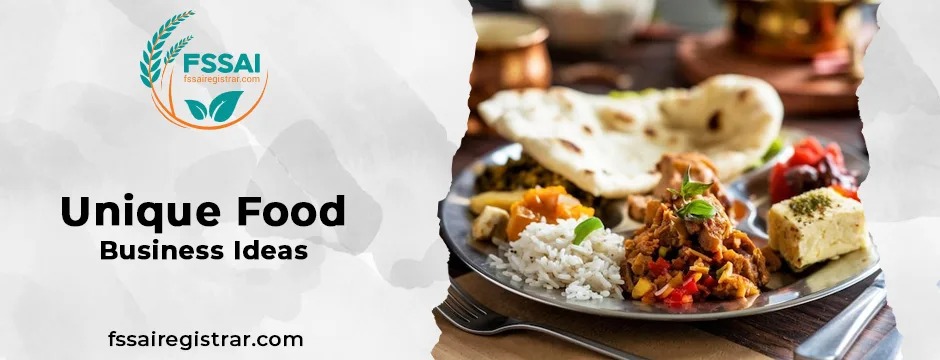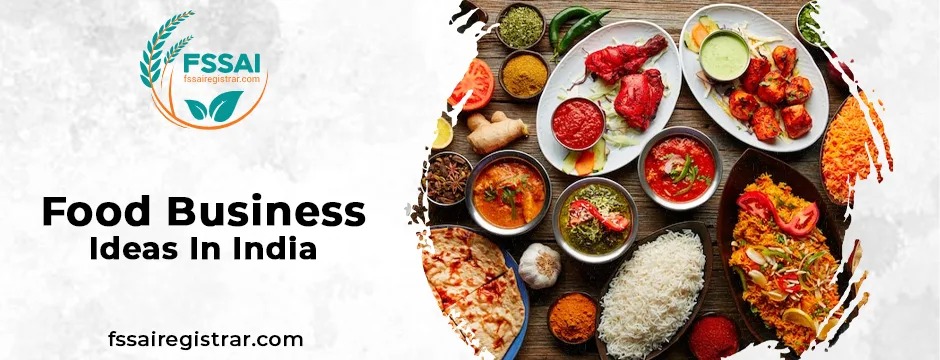How Do You Choose the Right Food Business Idea Based on Your Budget?
Starting a food business is exciting. Everyone thinks of turning their cooking skill or food idea into a business. However, one of the scariest things is choosing a good food business idea according to your budget. The right idea can save money, reduce stress, and increase the chances of success. In this blog, we will guide you in detail on how to choose food business ideas based on your budget.

1. Know Your Budget
It is important to know your budget prior to starting any business. Your budget is the amount of money that you can invest without getting yourself into financial trouble. You will have to calculate your savings and figure out how much you can invest in. Your budget will guide you to make your decisions regarding equipment, staff, location, and advertising.
A limited budget can limit you to home food businesses. A moderate budget can help you get small shops or kiosks. A high budget can allow you to invest in restaurants, cafes, or food trucks. Determine your budget first to make the right choice.
2. Select the Type of Food Business
Food businesses can be categorized in many ways. Some are simple and small, whereas others require a huge investment. If you are aware of the types, then you will be able to suit your budget accordingly.
- Home-Based Food Business: It is preparing pickles, snacks, bakery products, or homemade sauce. It entails low investment. You can start from your home.
- Food Kiosk or Stall: A small street stall or market can provide quick food, beverages, or snacks. Investment is average.
- Cafe or Restaurant: Additional capital will be needed for rent, furniture, and staff. You may provide meals, tea, coffee, or desserts.
- Food Truck: A mobile kitchen can travel to different locations. Investment is higher than a stall but lower than a restaurant.
- Online Food Business: Selling online or using delivery apps. You can sell out of the house and have access to a lot of customers.
By knowing the type, you can eliminate options based on your budget.
3. Estimate Startup Costs
Every business has startup costs. They are the original costs to start the business. You have to list all the costs before choosing a food business ideas in india.

Some typical costs are:
- Equipment and kitchen equipment
- Raw materials and ingredients
- Rent or shopping space (if required)
- Permits and licenses
- Food packaging for delivery
- Marketing and advertising
- Salaries of employees
List down all the probable expenses. Compare them with your budget. If the expense is higher than your budget, find an alternative that costs less.
4. Think About Operating Expenses
Apart from startup costs, every business incurs operating costs. These are monthly recurring costs to run the business.
Operating costs include:
- Buying ingredients regularly
- Salaried payments to employees
- Utility charges like electricity, water, and gas
- Rent or maintenance charges
- Delivery charges (if delivering home)
- Advertisement and promotional activities
It's important to check if your budget is able to sustain operating costs for at least 3 to 6 months. Most new businesses fail because they only estimate startup costs and ignore operating costs.
5. Match Business Ideas with Budget Categories
Here's a simple way to match food business ideas with different budget sizes:
Low Budget: Food snacks at home, bakery items, pickles, homemade sauces, and a small online food business.
Medium Budget: Food stall, juice shop, small café, catering for small events, small food delivery business.
High Budget: Restaurant, full-fledged café, food truck, bakery, specialty diet shop.
By categorizing them, you can see at once which ones are within your budget.
6. Research Market Demand
Even if a food business is within your means, it has to be in accordance with market demand. Find out what people want to consume in your vicinity. Go to local markets, food stalls, and online food websites. Ask your neighbours and friends what they prefer.
For example, if healthy snacks are trendy amongst most people in your city, a home-based healthy snack business could work. If people enjoy fast food near offices, a mini delivery business or street food corner can be made to work. Aligning your idea with demand increases the chances of success.
7. Evaluate Profit Margins
Profit margin is a term used to indicate the amount of money you receive from selling food minus the amount of money you spend on ingredients and other costs. Greater profit margins for some food businesses. For example, snacks, baked foods, and packaged foods have good margins.
Other ventures, like restaurants or cafes, have higher costs, and profits might come later. Always estimate profit margin before settling on your concept. Your budget must be sufficient to sustain costs until your profits begin to roll in.
8. Verify Licenses and Regulations
Food businesses require legal registration and licensing. In India, FSSAI registration is compulsory for all food businesses. Some unique food business ideas also need health permits, GST registration, or municipal licenses.

License costs and procedures vary depending on the business type. Home-based food business has lower licensing fees. Restaurants, cafes, and food vans require more paperwork and expenditure. Consider these expenses in your budget planning.
9. Consider Skills and Resources
Your skills and resources at home are also involved. If you are a good cook and baker, a home-based bakery or confectionery can be feasible. If you have marketing skills, food delivery online is profitable.
Check whether you have access to kitchen equipment, appliances, or labour. Some businesses require trained labour, and this raises the cost. Match your idea to something you can run cost-efficiently.
10. Begin Small and Grow
If your budget is tight, start small. You can expand later when your earnings are larger. For example, start with a home bakery and afterwards a small cafe. Start small with a food stall and expand to a restaurant.
Start small to reduce risk. You put less money down at the start and get familiar with the market before large investments are made. Gradual growth is a wise method of dealing with tight budgets.
11. Research Sources of Funding
If your food business ideas are limited but you dream big for a bigger business, you can seek funds. You can take a small loan, a bank loan, or find investors. Some government schemes help food entrepreneurs with grants or low-interest loans.
Be sure to have a solid plan to return the money before borrowing. Financing can assist in opening a larger food business, but it also brings more responsibility in terms of finance.
12. Test Your Idea
Test your idea before investing completely. For instance, produce small quantities of products and sell them online or in local markets. Watch for customer response and sales.
Testing is cheap and gives valuable feedback. It tells you if your business idea will work in real life. Testing reduces the risk of losing money and allows you to get the most value for your money.
13. Market for Marketing
Just like any successful food business, even the most successful food business can go out of business if it doesn't have customers. Budget marketing. Utilize social media, flyers, word-of-mouth, and online order sites.
For low budgets, social media promotions are free or cheap. For large budgets, promotions, partnerships, or advertising can be utilized. Marketing makes your customers aware of your food business.
Conclusion
Choosing the right food business idea based on your budget is very critical. Start with an idea of your startup and operating costs. Choose a food business that fits within your budget and skill level. Execute market research for demand, project profit margins, and ensure licenses. Keep it small, pilot-test your concept, and plan wisely for marketing.
With proper planning and smart budgeting, you can start a successful food business. The idea is to pair your budget with an appropriate concept and grow your business gradually. Effective planning reduces risks and enables you to enjoy a fulfilling journey in your food business.
Ensure your food business meets the highest safety standards with FSSAI Registrar, your trusted partner for hassle-free, ISO-certified FSSAI registration services across India.
- FSSAI Registration
- Get fssai license in 1 hour
- Significance Of Fssai Registration For Repackers In Food Industry
- Renewing and upgrading your fssai license a comprehensive guide
- Food safety guide for food handlers food licensing registration
- FSSAI Central License Fees Guide for Food Businesses
- Choose the Right Food Business Idea for Your Budget
- The Role of Food and Safety Registration in Preventing Food Fraud
- Get Your FSSAI License in 1 Hour: A Quick Step by Step Guide
- Significance of FSSAI Registration for Repackers in Food Industry
- Renewing and Upgrading Your FSSAI License